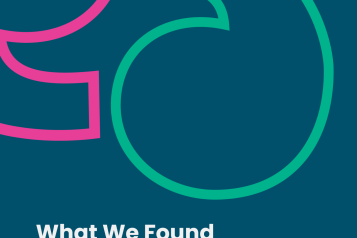Lack of communication support leaves sign languages users in the dark about their health conditions

The RNID survey of more than 1,300 people in the UK who are deaf or have hearing loss found that almost one in 10 had avoided calling an ambulance or attending A&E due to a lack of suitable communication support, and a quarter had avoided seeking help for a new health concern.
- 69% of respondents say they have never been asked about their information or communication needs.
- 25% of respondents say they are not able to contact their GP in way that is accessible to them, this figure rises to 49% of sign language users
- Only 56% of respondents say they leave NHS appointments feeling they have fully understood the information given about their health, while over a third (34%) say they do not
Crystal Rolfe, the director of strategy at RNID, said: “Imagine not being able to understand a cancer diagnosis, or having to rely on a family member to tell you that you’re seriously ill or even dying.
The horrifying truth is that too many deaf people in England today don’t have to imagine it – it’s happening to them in real life."
Under the Equality Act, health services must make “reasonable adjustments” to remove barriers faced by people who are deaf or have hearing loss when accessing care. This could include things like access to a BSL interpreter or providing alternatives to the telephone for contacting services.
The RNID investigation found that less than a quarter (24%) of NHS staff say they can always meet the information and communication needs of patients who are deaf or have hearing loss.
Louise Ansari, chief executive at Healthwatch England, said: “Everyone should receive healthcare in a format they can understand. People who have sensory impairments and learning disabilities have been waiting too long for the NHS to meet their communications needs, which are underpinned by the Equality Act.
“We have asked the government to strengthen legislation to ensure the NHS fully complies with the standard and we urge ministers to publicly confirm their commitment to address this important equality, safety, communication and patient experience issue.”
The Delivery of the Accessible Information Standard in South West London GP Practices
In October 2024, Healthwatch across South West London engaged with local communities to explore how well GP practices are meeting the Accessible Information Standard (AIS). This NHS framework mandates that health and social care providers identify, record, and meet the communication needs of patients with communication support needs as required under the Equality Act.
Engaging with 144 patients and carers, alongside 82 GP staff members, the project uncovered significant barriers. Notably, 73% of patients and carers were unaware of the AIS, and many told us they had to repeatedly explain their communication needs at each visit.
British Sign Language (BSL) users faced particular challenges, including delays in arranging interpreters, leading to postponed or missed appointments, and a reliance on family members or charities to interpret sensitive health information raised concerns about privacy.
GP practices in South West London introduced a new British Sign Language (BSL) interpreter provider in 2024. We want to know if the new services are helping to address the concerns that people raised with us. If you have used the new BSL services in GP practices across South West London, we want to understand your experience.


